The DSA Is at a Crossroads Over Palestine
The group has been riven by conflict over its stated commitment to the Boycott, Divestment, and Sanctions movement—and things are coming to a head at its national convention.
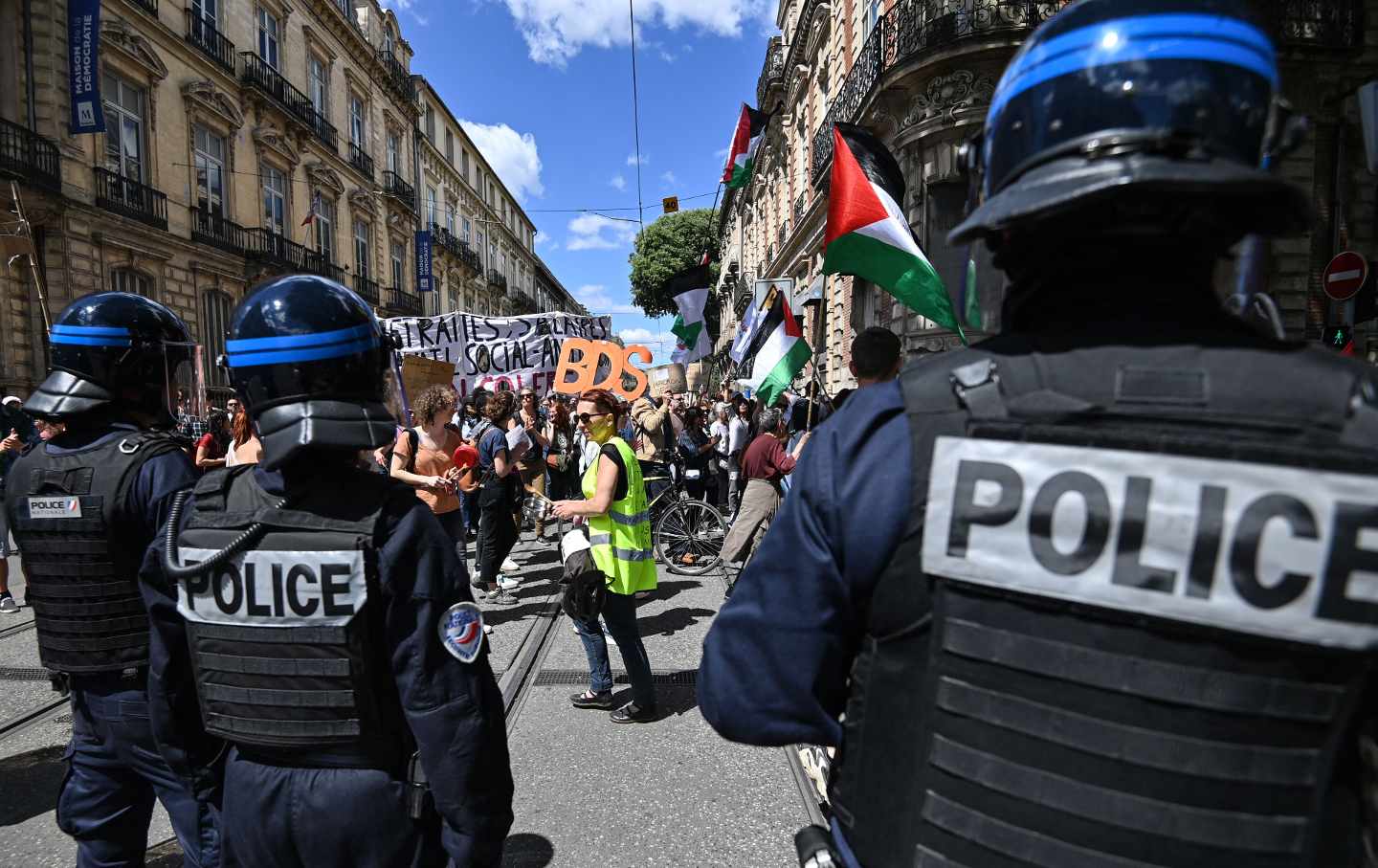
Riot police stand by as protesters brandish a placard for the Boycott, Divestment, and Sanctions movement during a May Day march in Montpellier, France, on May 1, 2023.
(Sylvain Thomas / AFP via Getty Images)Next week, members of the Democratic Socialists of America are gathering in Chicago for their biennial national convention. There, they will vote on a pair of resolutions that will test both the organization’s internal cohesion and the boundaries of its stated commitment to Palestinian liberation.
One resolution calls for the DSA to become an “Anti-Zionist Organization in Principle and Praxis.” Another asks the DSA to “Overturn the NPC Decision to Suspend the Steering Committee of the BDS and Palestine Solidarity WG.”
Both resolutions allude to what has been a bitter and tumultuous 18 months within the DSA around the issue of Palestine—one that began with repeated conflicts over the behavior of DSA-aligned politicians and culminated in the controversial decision of the DSA’s National Political Committee (NPC) to forcibly dissolve the DSA Boycott, Divestment, and Sanctions (BDS) and Palestine Solidarity Working Group in March 2022. (That decision was soon reversed, but members of the BDS Working Group were still barred from national leadership.)
Multiple members of the BDS group told us that they are trying to transform an institution that they see as undemocratic, too focused on electoral politics at the expense of core principles, and perpetuating anti-Palestinian racism.
The decision to dissolve the BDS Working Group came after months of heated debate over whether US Representative and DSA member Jamaal Bowman should have been expelled from the organization after he voted to fund Israel’s Iron Dome and took a trip to Israel with the liberal Zionist organization J Street—two decisions that stood directly counter to the DSA’s platform.
In a November 2021 statement, the Working Group, along with several local DSA chapters, condemned Bowman’s conduct and called for the DSA to expel him if he would not commit to upholding DSA principles, including BDS. Members of the Working Group, along with representatives from the NPC and Bowman’s local chapter, then met with Bowman. The Working Group asked Bowman to break ties with J Street and the broader Israel lobby and to commit to voting against future aid to Israel. After Bowman refused, the Working Group issued a second statement, calling for the NPC to “formally begin the process of expelling [him] from the DSA.”
In a statement posted in December 2021, the DSA’s national leadership said that, though it “strongly condemn[ed]” Bowman’s actions, it would not be expelling him, in part because it would be “handing the perfect tool to the establishment to stoke divisions within the Palestine solidarity movement” and vowing not to endorse him again “unless he is able to demonstrate solidarity with Palestine in alignment with expectations we have set.” (Bowman did not seek a DSA endorsement during his 2022 campaign, though he remains a member.)
For many DSA members, though, Bowman’s actions crossed too many red lines. This resulted in a months-long campaign that reportedly saw over 50 chapters calling for Bowman’s expulsion as he continued to publicly voice his support for military aid to Israel. As the conflict became increasingly public, the NPC’s response to this was to revoke the Working Group’s social media access and demand that they delete a Twitter thread criticizing Bowman.
Things finally came to a head on March 18, 2022, when the NPC voted 9-8 to dissolve the Working Group. In a statement, the NPC charged the group with “repeated smears, bullying, accusations, and misrepresentations of events.” The de-chartering was reversed a few days later following a pressure campaign that saw over a thousand DSA members and over a dozen chapters sign a petition in support of the Working Group, as well as an e-mail campaign hosted by the US Campaign for Palestinian Rights telling the NPC to recharter the Working Group. (A petition in support of the decision was also circulated.) However, the ban on BDS Working Group Steering Committee members taking leadership in other national DSA bodies was not rescinded.
Members of the Working Group we spoke with say that there’s been a dearth of communication from NPC about its decision-making process over the last year. “They haven’t been able to justify their actions to us or to membership,” one member, who asked to be referred to as “MJ,” said. “And they have not held a public forum at any point for any of this.”
Some members of the NPC have expressed similar disquiet about how events unfolded. NPC member Jennifer Bolen, who voted against the expulsion, told us last year that the decision to de-charter the BDS group felt rushed through with no opportunity for input. “The options as to what consequences the working group should face were presented in a list forum and thrown up on an online voting platform,” Bolen said. “No room for amendments. No room for discussion. No room for debate. No room for what was even feasible and what wasn’t feasible. It was just pushed through, and I think it was a 24-hour vote.”
(The NPC did not respond to repeated requests for comment from members who voted for the BDS group to be de-chartered. Part of a tweet thread from NPC member Gustavo Gordillo written just after the vote sums up the overall thinking, though: “Facile thinking about power—demanding easy answers to difficult moral and political questions—is bad for the left. The BDS working group’s leaders did not want to confront what we should do with limited power, and were offended by being asked to reckon with it.”)
The decision to disband the BDS Working Group was, predictably, met with an immediate backlash from Palestinian organizations that had collaborated with the DSA—including the Palestinian Youth Movement, Good Shepherd Collective, and Falastiniyat Seattle—as well as observers like Palestinian American novelist Susan Abulhawa, who publicly criticized the DSA’s decision not to expel Bowman in 2021.
Popular
“swipe left below to view more authors”Swipe →“DSA decided to take a stand in solidarity with Palestinian liberation by embracing the BDS movement,” Abulhawa said in an interview. “In doing so, DSA gained significantly greater credibility on the left and increased their membership. But when the time came that their solidarity posed an inconvenience—namely a powerful member not only crossing the BDS picket line, but voting in favor of empowering Israeli apartheid and colonialism—they chose to throw Palestinians under the bus in order to preserve their access to power.”
Catherine Elias, co-chair of the Working Group, told us that DSA members have struggled to organize with grassroots Palestinian organizations, because of the fear that the DSA can’t be trusted on the issue. One of those groups is Students For Justice in Palestine. In an e-mail, a spokesperson for the group told us, “It is clear that the political line of DSA’s local leadership and rank-and-file members differs significantly from the Zionist line of Democratic Socialists of America’s national leadership.” They continued: “Since the BDS Working Group was unjustly dissolved by the DSA National Political Committee, National SJP has sustained a boycott to hold the DSA NPC accountable to their membership and socialist base. There is no space for Zionism in leftist organizations.”
The situation points to ways in which Palestine has become a defining cause within progressive circles, despite observers who have referred to BDS and Palestinian causes writ large as a “proxy issue” for other supposedly more pressing issues. “We want to talk about it in terms of a litmus test for how a politician and plenty of others will act,” Elias said. “If you fail on Palestine, you are going to fail on other issues.” As an example, she pointed to Bowman’s November vote—along with other DSA-backed politicians like Alexandria Ocasio-Cortez—to forcibly impose a contract on striking railroad workers.
“Why would any other DSA member-politician ever expect any sort of repercussions?” Elias said. “Why would they care to have those accountability conversations? Why would they care to actually engage in good faith when this organization has demonstrated now multiple times that it won’t act at a national level against Zionist politics in practice?”
Interestingly, Bowman was one of a handful of representatives to vote against the recent resolution declaring that Israel is “not a racist or apartheid state.” He also boycotted Israeli President Isaac Herzog’s speech to Congress, writing, “We must hold our allies accountable when it comes to human rights violations and the abuses of far-right governments.” These decisions might be seen as a win for the DSA’s claim that it was applying pressure on Bowman even without expelling him. But BDS Working Group members don’t agree. “Bowman acknowledging the existence of Israeli apartheid does not change the fact that he votes in favor every time for military aid to Israeli occupation forces and has publicly stated he will continue to do so when given the chance,” MJ told us.
Things are set to come to a head at next week’s convention, when DSA members from across the country will have their first chance in two years to vote on the way forward for the national organization.
“The convention is the highest decision-making body in DSA. It’s due to the NPC’s inability to recognize their own mistakes, the harm that their own mistakes have caused to DSA members and our issues, across the country and across the globe that has led to this resolution and why the convention will now have to decide on it because the NPC has proven themselves incapable of doing so in a principled way,” said MJ.
The proposed anti-Zionist resolution defines Zionism as “a racist, imperialist, settler-colonial project.” It spells out guidelines for political endorsements that include support for BDS and a lack of affiliation with either the Israeli government or Israel lobby groups “such as, but not limited to, AIPAC, J Street, or Democratic Majority for Israel (DMFI), including participating in political junkets or any event sponsored by these entities.” In addition, it calls for the expulsion of members “who have consistently and publicly opposed BDS, even after receiving fair and ample opportunity for education” (in line with existing DSA bylaws), but also provides conditions for membership to be reconsidered following later support for BDS.
The NPC has plans of its own, though. On July 20, the BDS Working Group issued a statement saying that the NPC had voted “to recommend to the DSA Convention that they adopt an NPC resolution to dissolve our Working Group by forcibly absorbing us into the International Committee.” So the stakes for the convention have been pushed even higher.
It was at the convention in 2017 that a rowdy crowd loudly cheered as the DSA voted to support the BDS movement. The moment felt to many like it was pivoting away from the organization’s unambiguously Zionist roots. Now, the DSA has found itself at another crossroads: Will it take a firm line on the liberatory principles its members have backed, or will its electoral goals continue to take priority?
“I want people to look back at DSA and say, ‘There were challenges, but the leadership was able to look at themselves and take on this criticism and synthesize something new and move on,’” Bolen said.
Note: This piece has been updated to clarify that Jennifer Bolen spoke to the authors last year during their reporting process.
More from The Nation
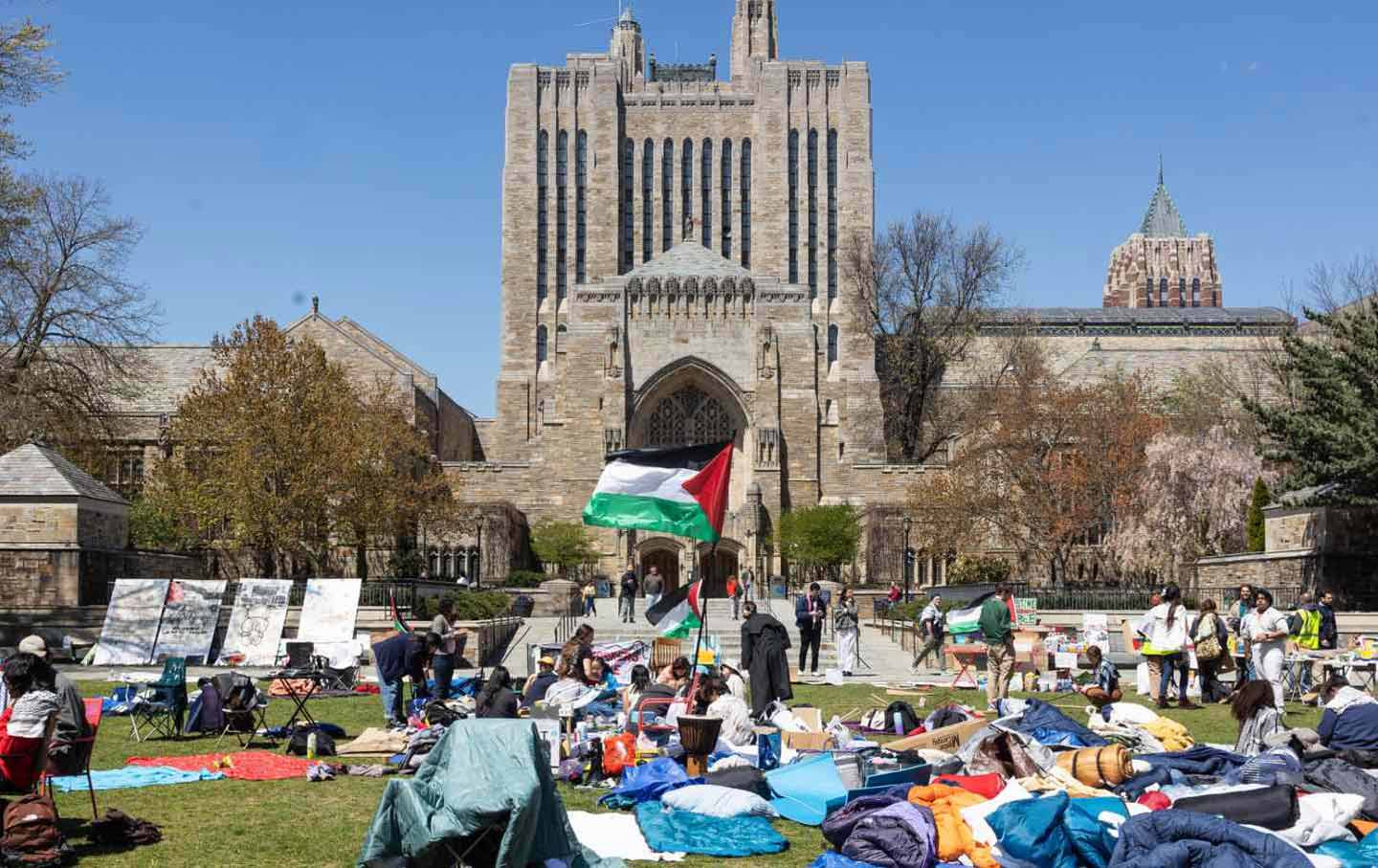
Yale Students Voted to Divest, but What’s Next is Unclear Yale Students Voted to Divest, but What’s Next is Unclear
The referendum calls on the school to divest its $41 billion endowment from military weapons manufacturing firms, yet the power to do so is in the hands of the board of trustees.
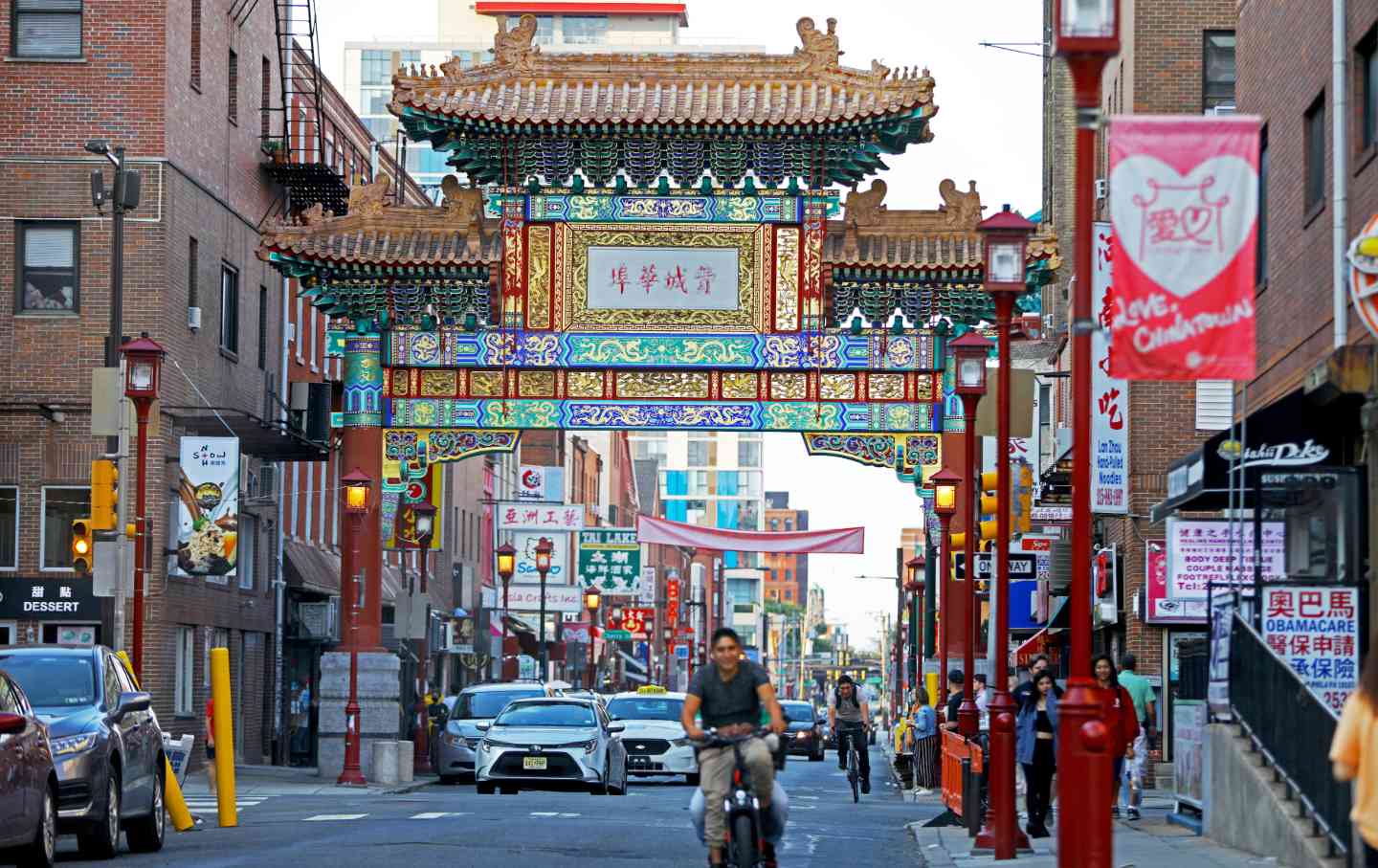
The “Save Chinatown” Coalition Goes on the Defensive in Philadelphia The “Save Chinatown” Coalition Goes on the Defensive in Philadelphia
The construction of a new basketball arena threatens to fill the neighborhood with more traffic and raise rents.

Human Rights for Everyone Human Rights for Everyone
December 10 is Human Rights Day, commemorating the anniversary of the Universal Declaration of Human Rights (UDHR), one of the world's most groundbreaking global pledges.
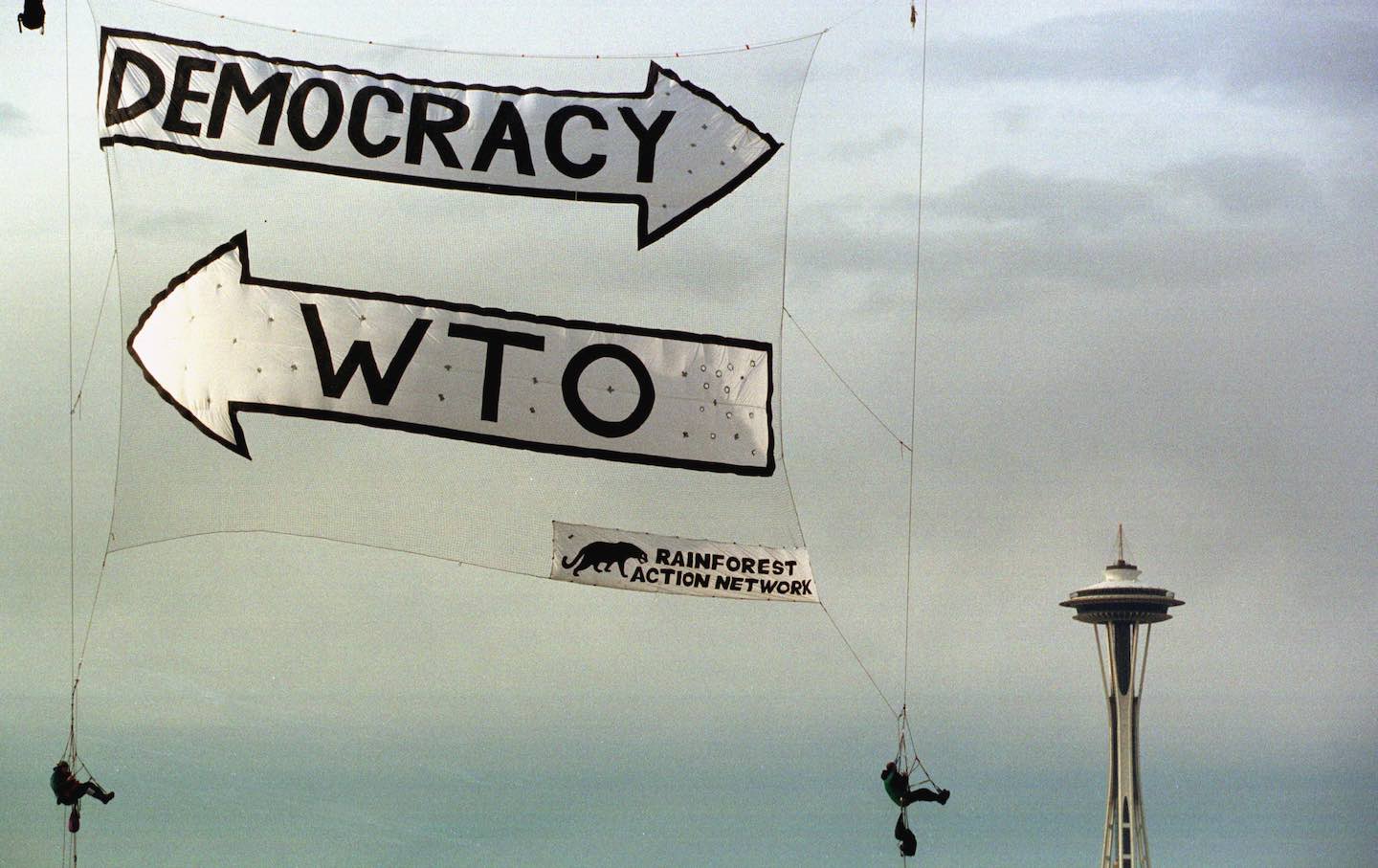
25 Years Ago, the Battle of Seattle Showed Us What Democracy Looks Like 25 Years Ago, the Battle of Seattle Showed Us What Democracy Looks Like
The protests against the WTO Conference in 1999 were short-lived. But their legacy has reverberated through American political life ever since.
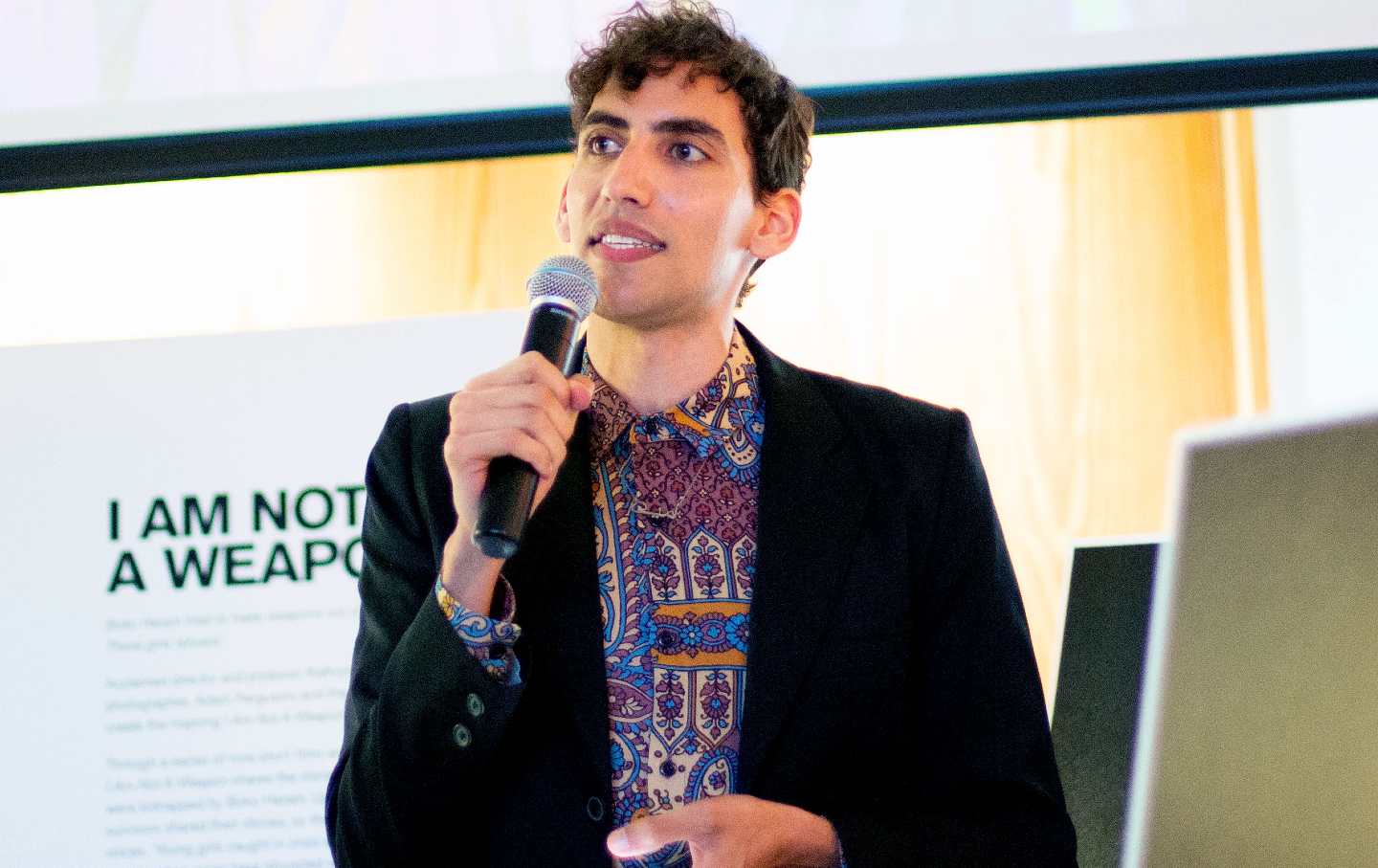
Hollywood’s Vocal Actors Union Goes Silent on a Gaza Ceasefire Hollywood’s Vocal Actors Union Goes Silent on a Gaza Ceasefire
Amin El Gamal, head of SAG-AFTRA's committee on Middle Eastern and North African members, has advocated for a statement supporting a ceasefire in Gaza—so far without success
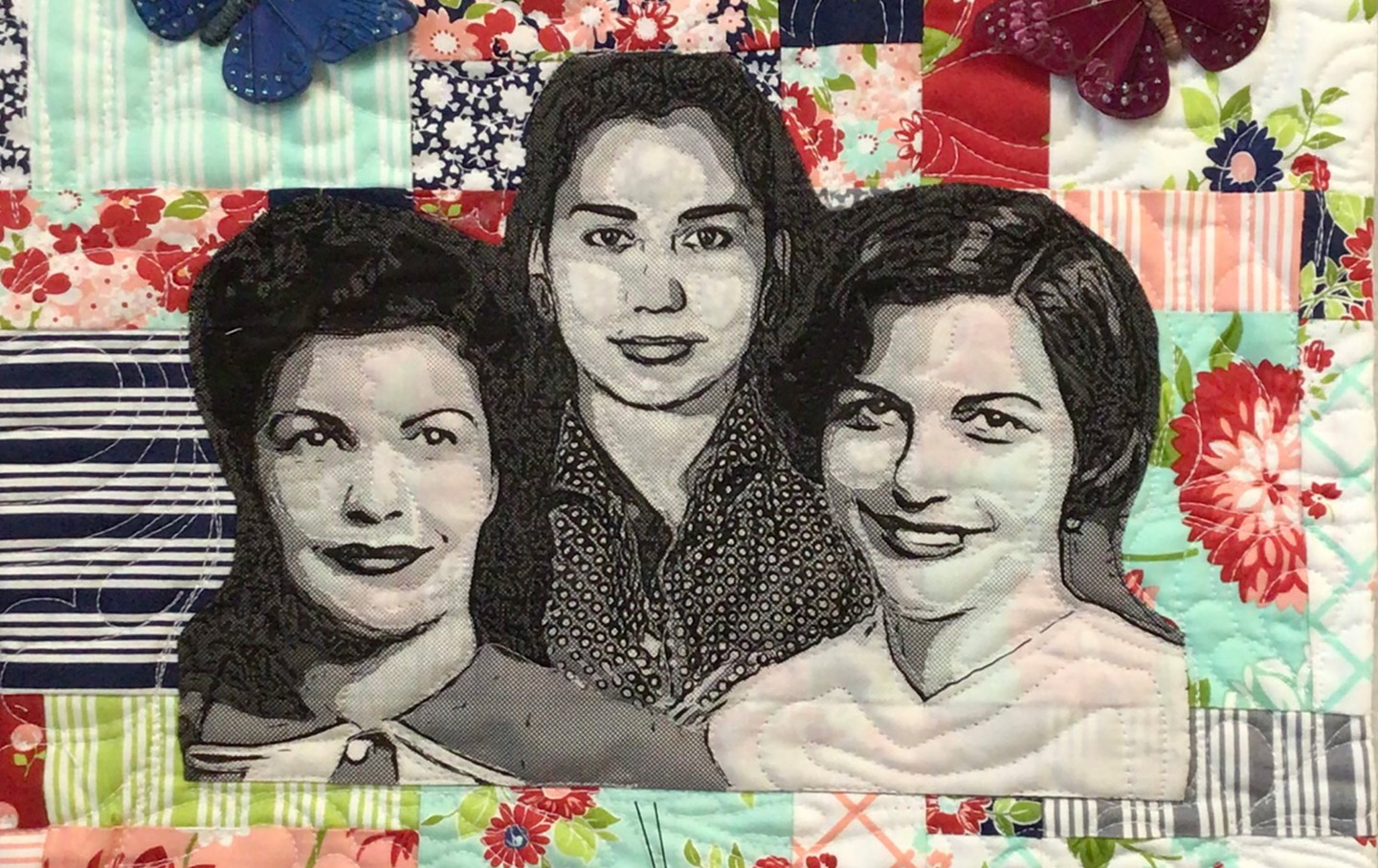
The Mirabal Sisters The Mirabal Sisters
Patria, Minerva, and María Teresa Mirabal were sisters from the Dominican Republic who opposed the dictatorship of Rafael Trujillo; they were assassinated on November 25, 1960, und...


